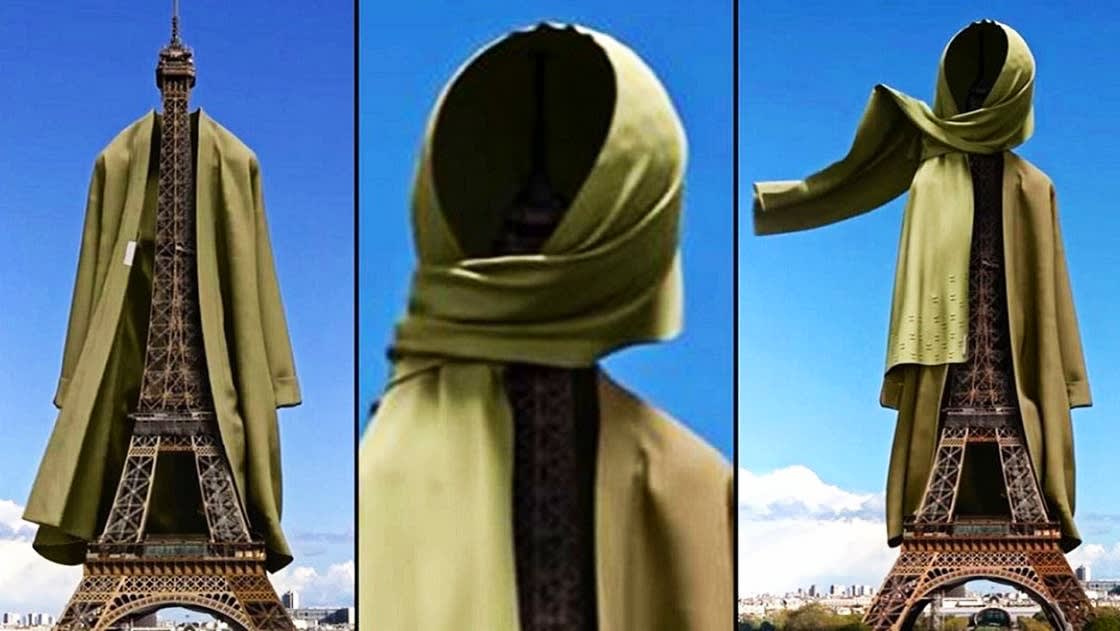A wave of anger has surged in France following a controversial advertisement by the clothing brand "Merrachi," specializing in Islamic fashion, posted on Instagram. The ad depicts the Eiffel Tower covered with a hijab, accompanied by the phrase: "The French government hates the arrival of Merrachi," referring to the brand's expansion in Paris. The ad has sparked widespread outrage in a country where wearing the hijab is prohibited in schools and government institutions. Several journalists and politicians have criticized the ad, considering it to carry an anti-government message. Laurent Neumann, a journalist from BFM news channel, stated: "The hijab is only banned in schools, and claiming to sell modest clothing free of any religious connotation is false." Geraldine Woessner, an editor at Le Point magazine, viewed the ad as promoting the idea that the hijab is modest while the rest are immodest, which she described as aggressive and malicious. Politicians from the far-right National Rally party strongly objected to the ad, with MP Lizy Poli describing it as an "insult to the Eiffel Tower by wrapping it in an Islamic hijab." "Merrachi," founded by Dutch-Moroccan Nadia Merashi (26 years old), started its online business and recently opened a new store in an upscale neighborhood in Paris. So far, the company has not issued any official statement regarding the controversy. France, which adheres to strict secularism, prohibits public employees, police officers, lawyers, students in government schools, and teachers from wearing any religious symbols, including hijabs, crosses, and Jewish kippahs. Full-face veils are also banned in public places, and in 2023, wearing the abaya was prohibited in government schools. Despite the controversy, the Islamic fashion market continues to grow rapidly, with its global value estimated at over $83 billion annually, expected to rise to at least $130 billion by 2031, according to some estimates. What was just an image on Instagram has now become a topic of discussion in the media and politics, revealing increasing cultural and religious divisions in France.

